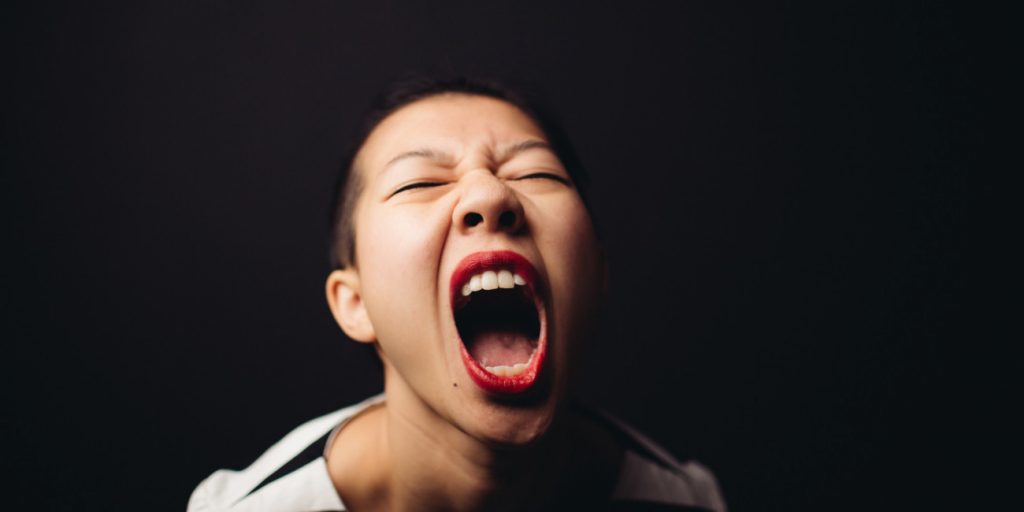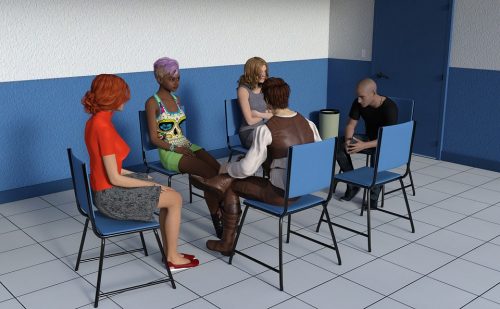
I often talk about depression to other people, and most of them would enumerate the signs and symptoms that they all feel – loneliness, sadness, low self-confidence, lack of enthusiasm to live, erratic sleep patterns, no or too much appetite, and suicidal thoughts. Their family members would attest to seeing these symptoms inside and outside of their homes. “When you find yourself spending more than you can afford, drinking or using drugs often, making knee-jerk relationship choices, or having overblown reactions to others, it could be a sign of deeper problems,” says Ryan Howes, PhD. These are some of the most common manifestations of depression.
However, there are some individuals diagnosed with depression who are very irritable and have sudden bursts of anger or deep-seated feeling of rage within them. It seems that they are angry with anything and everything about their life. Their co-workers trigger their mood swings, their children piss them off quicker than usual, and even their friends provoke a temper.
So how are irritability and anger associated with depression? Are they connected in some way?
Depression And Anger
Some psychologists would say that depression is ‘anger turned inward.’ But when that deep-seated anger manages to lurk outward, it is highly likely that a more heightened kind of reaction is seen, especially when depression is accompanied with rage. “Uncontrollable sadness, anger, or hopelessness may be signs of a mental health issue that can improve with treatment,” according to David Sack, M.D.
Perhaps it would be more helpful if we do not think of depression as a mental illness or a complex mood disorder, but to look at it as a loss of reasonable control of one’s emotions. A group of researchers summarized their findings on the relationship between depression and anger:

“Evidence has shown that there is a close connection between depression and anger for both the normal and the patient groups. The normal person showed less anger and irritability than the patient diagnosed with depression. The patient also presented with less suppression and control of his anger. This outcome indicates that depression theories are explaining that arrested defenses of the fight (anger) and flight (feeling of being trapped) may be vital components of depression.
“On the other hand, it is also recognized that people who are depressed also show more anger, although residual symptoms of frustration and anger seen in the treatment phase might be associated with poor therapeutic results. Depressed individuals also show more hostility than normal individuals.”
Therefore, depressed people are more likely to go through irritability and anger issues in ways that others would not understand. Also, some signs and symptoms of depression may be due to other factors, including environment, culture, and upbringing.
Depression And Negative Emotions
As researchers continue to explore the link between depression and anger. They did a study on 90 depressed individuals (60 men and 30 women) and gave them a test to evaluate their negative emotions (depression, anger, irritability) and how efficiently they can handle them.
The results of the study revealed that feelings of rage and depression are connected through the role of controlling or regulating emotions and anger rumination. According to John M. Grohol, PsyD, “Some people with depression become more irritable and angry with virtually everyone and everything in their life.” This means that people have the likelihood to manifest irritable or angry signs in depression if they are the type who contemplate on past situations when they were angry, or if they have trouble handling their emotions. Those who are quick-tempered, for example, would be more prone to express their depression through their anger.
Treatment For Depression Through Anger
Since this type of depressive disorder is centered on two components – rumination and emotion regulation – the said components should primarily be treated. Rumination somehow triggers the depression to come back. This makes psychotherapy the appropriate choice of treatment.
One form of psychotherapy that can be utilized is mindfulness-based cognitive therapy, a customized form of psychotherapy that integrates mindfulness techniques like meditation and breathing. MBCT practitioners teach patients how to free themselves from negative behavioral patterns that cause them to spiral downward into a more severe depressed state. They also use these on people who are on the brink of relapsing.

Source: pixabay.com
Emotion regulation can be helpful in decreasing feelings of irritability and rage in depression. The fundamental strategies used in emotional regulation include:
- Reappraising the situation. The person is allowed to think about the feeling or circumstance that is causing him to be angry or more depressed.
- The person is taught and encouraged to prevent expressing his emotions outwardly but to control them and experience them in the inside.
- He then attempts to accept the emotions as they feel them internally and being conscious and making sure not to act on those emotions.
Conclusion
Anger does isolate and damage a person’s relationships, more so if he is already depressed and frustrated. More effort must be made on increasing awareness on how these negative emotions play in depression.
Ultimately, the key to fully comprehending the concept of depression is to acknowledge that it is an intricate illness that presents itself in varying ways. Some people may hide their depression, and some may be so blunt and emotional to show them irritability and anger. This is why any form of depression – whether it is simple or complicated – needs our attention and help.